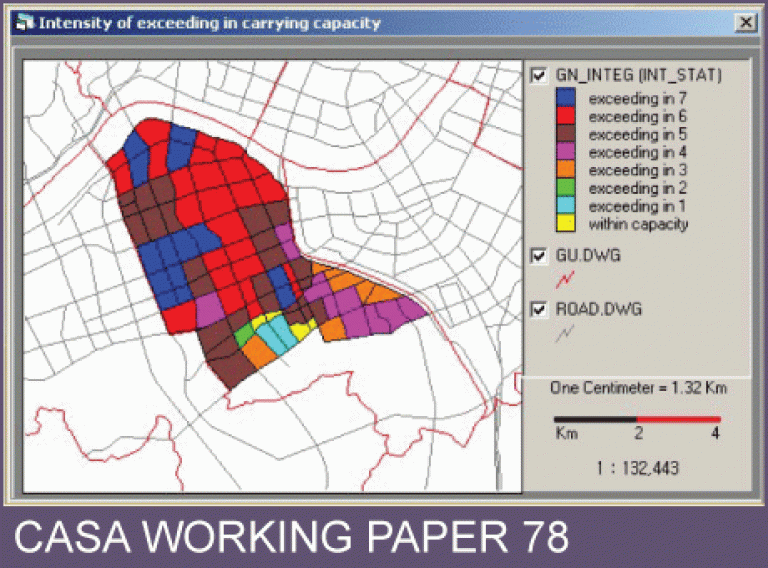CASA Working Paper 78

1 March 2004
Determining Sustainable Development Density using the Urban Carrying Capacity Assessment System
Diverse urban problems in the capital region of Korea occur due to over-development and over-concentration which exceed the region's carrying capacity. Particularly, environmental problems such as air and water pollution have become more evident and become central issues for urban planners and decision-makers. In achieving sustainable environment through resolving such problems, practical approaches to incorporate the concept of environmental sustainability into managing urban development are needed.
This research aims at developing an integrated framework for assessing urban carrying capacity which can determine sustainable development density, and has yielded the following. First, seven determining factors for urban carrying capacity including energy, green areas, roads, subway systems, water supply, sewage treatment, and waste treatment were identified, and the assessment framework was developed by integrating such factors. Second, the UCCAS, a GIS-based carrying capacity assessment system was developed based upon the framework. Finally, through a case study of determining carrying capacity of an urban area, it was revealed that decision support with the UCCAS demonstrated in this research could play a pivotal role in planning and managing urban development more effectively.
This working paper is available as a PDF. The file size is 3.44MB.
Authors: Kyushik Oh
Publication Date: 1/3/2004
 Close
Close

